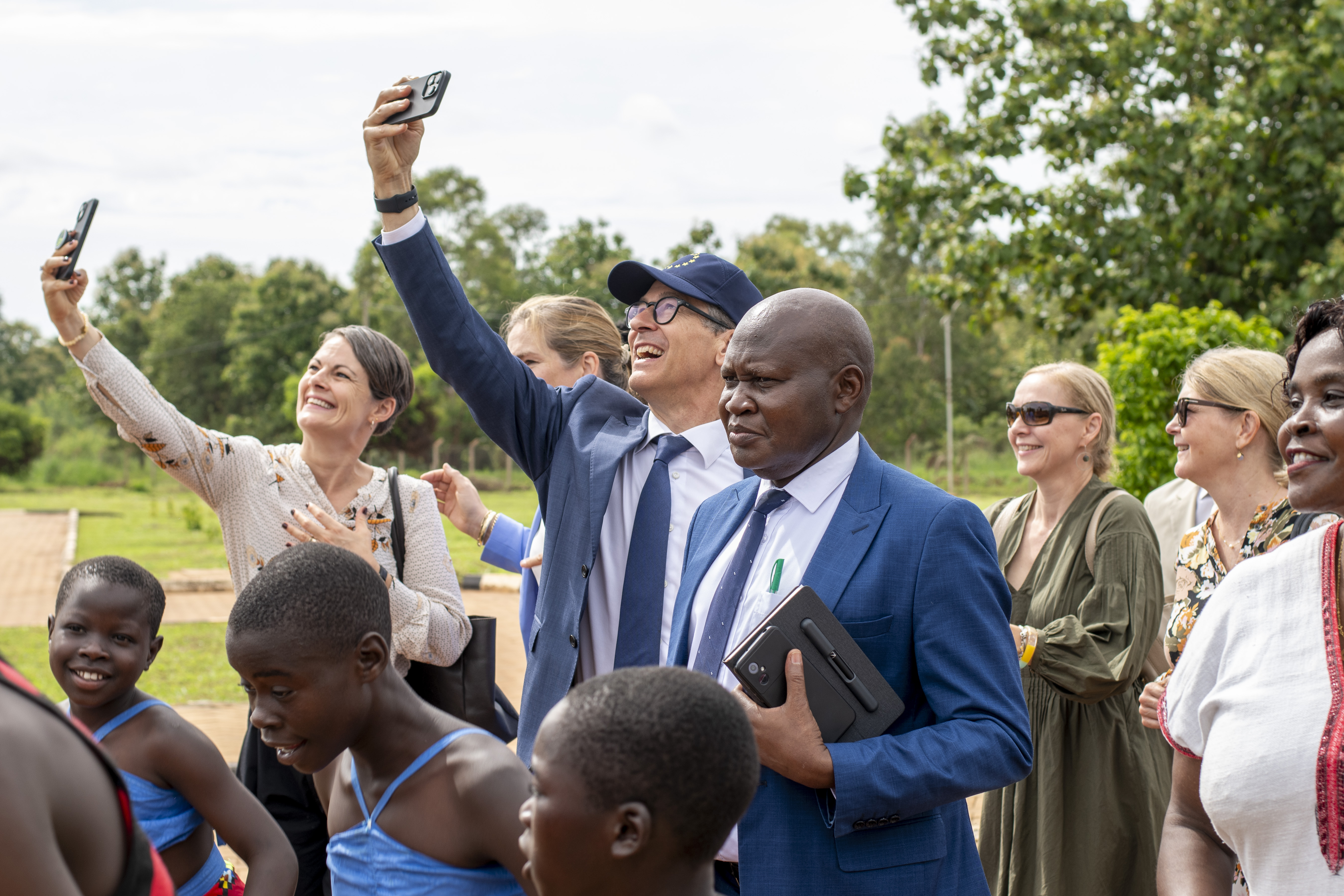Transitional Justice (TJ) was at the centre of interactions as the European Union Delegation in Uganda visited Gulu University on May 21, 2025.
A testimony by Patrick Ochen, a student at the university, who was born in rebel captivity, moved at least one ambassador to tears.
“You can see me smartly dressed in a suit, but I am dying from the inside,” Ochen said as he concluded his emotional story.
His voice was representing thousands of children born of war who, owing to their birth circumstance–where the majority lack a known paternal lineage–don’t only face discrimination from the local communities but also through national policies.
“The issue of statelessness, the lack of National IDs makes it difficult for us to access basic services including healthcare. In 2018 I lost an opportunity for a scholarship because I didn't have a National ID,” Ochen told the ambassadors.
The visit
The delegation’s visit started with a courtesy call to the Office of the Vice Chancellor. Prof. David Okello Owiny, the Deputy Vice Chancellor in Charge of Academic Affairs, received them.
The delegation, led by the EU Ambassador to Uganda, Jan Sadek, included Toke Arnoldi (Political Advisor to the EU Delegation), Mathias Schauer (German Ambassador), Dr. Simone Knapp (Austrian Ambassador-based in Ethiopia), Xavier Sticker (Ambassador of France), Hugues Chantry (Ambassador of Belgium), Signe Winding Albjerg (Ambassador of Denmark), Maria Hakansson (Ambassador of Sweden), and Frederieke Quispel (Ambassador of the Netherlands to Uganda).
After a twenty-minute interaction, the delegation, accompanied by Dr. Owiny, proceeded to the university’s Multifunctional Laboratory to listen to presentations from the academia and the civil society on transitional justice in northern Uganda.
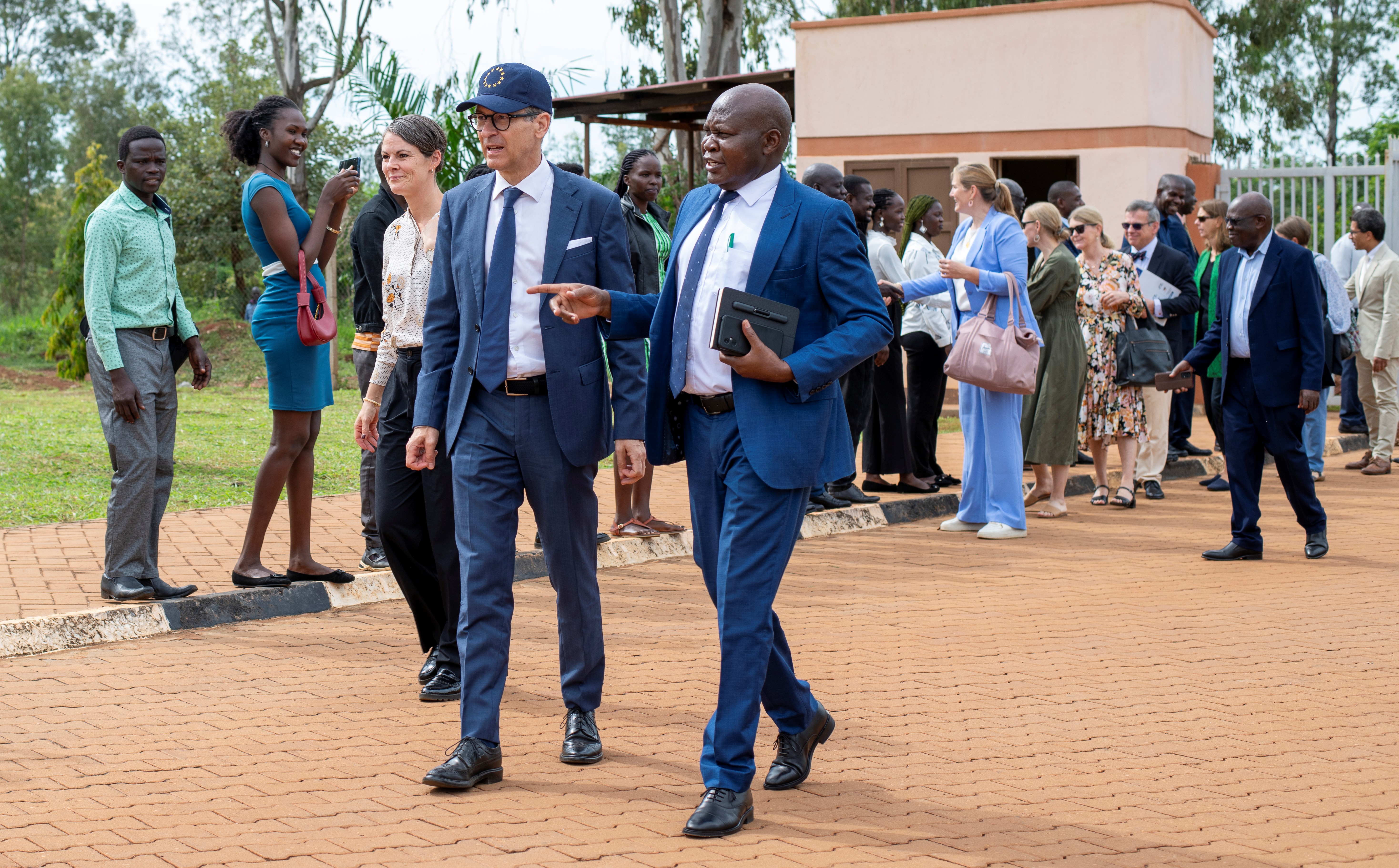
Prof. Owiny (r) walks beside Jan Sadek, the EU Ambassador, and Signe Winding Albjerg, the Ambassador of Denmark, as other EU ambassadors follow.
“We are cognisant of the EU’s interest in transitional justice, reconciliation and post-conflict stabilisation. As you are aware, transitional justice is a critical pillar for building durable peace and democratic resilience. Your continued support and principled engagement remain vital,” said Dr. Agatha Alidri, the BSU Coordinator, in her welcome speech. TJ is among the thematic areas at Gulu University supported by BSU, with funding from the Ministry of Foreign Affairs of Denmark.
“Victim participation must remain at the heart of any credible transitional justice mechanism. Justice efforts are gaining legitimacy, but public trust hinges on sustained EU support and national political will. We therefore invite you to be part of this roundtable to advance coordinated EU efforts on justice and reconciliation,” added Dr. Alidri.
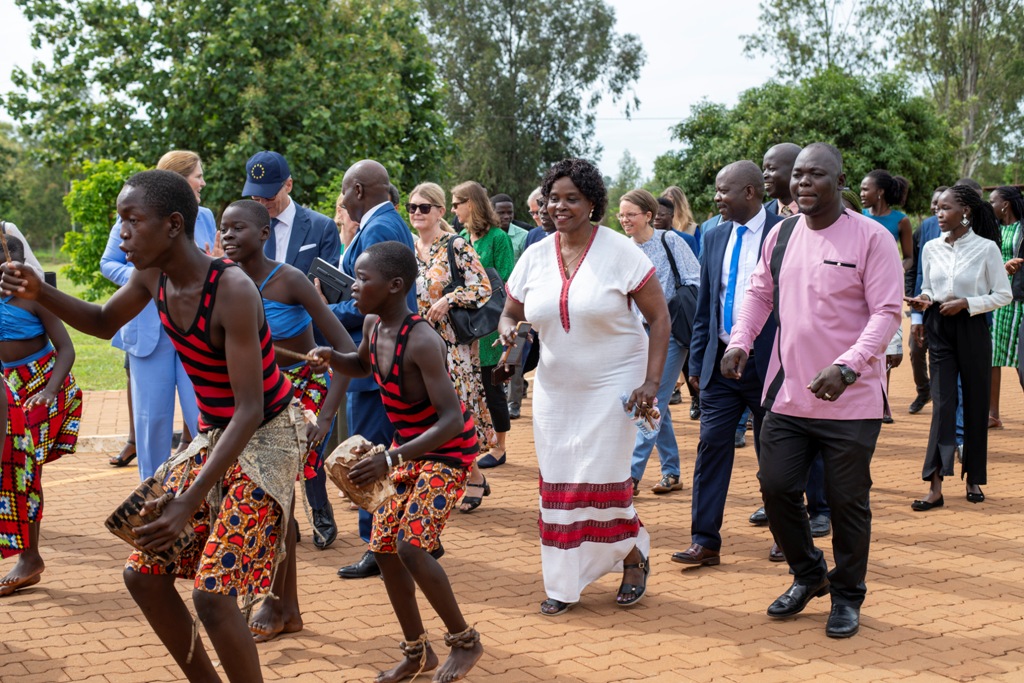
BSU Coordinator Dr. Alidri (in white dress with red stripes) in an Acholi dance as she welcomes the EU Delegation in Uganda to the TJ engagement
Truth-telling and accountability
Dr. Stella Laloyo Apecu, the Chief of Gulu University’s Institute of Peace and Strategic Studies (IPSS), described what the people of northern Uganda went through during the LRA conflict as terrible and called for truth-telling, justice, and accountability.
“Northern Uganda has gone through legacies of human rights violations – sexual and gender-based violence, enslavement – terrible things that should not have happened to a human being but they happened in this region. The poverty is endemic and the worst of them all is the plight of children born of war who are stateless people. These are children born of rape and sexual violence. We have thousands of them and the government of Uganda denies them identity cards, land; denies them being a person.
“One thing that has not happened and I don’t think it will happen while I am still alive is truth-telling. Nobody has told the truth of what happened here. We only hear about LRA – yes they committed atrocities but what about the UPDF? They equally committed crimes. When we talk to the survivors of massacres they say they need accountability. They need justice. People need to know who killed who and why?,” she said.
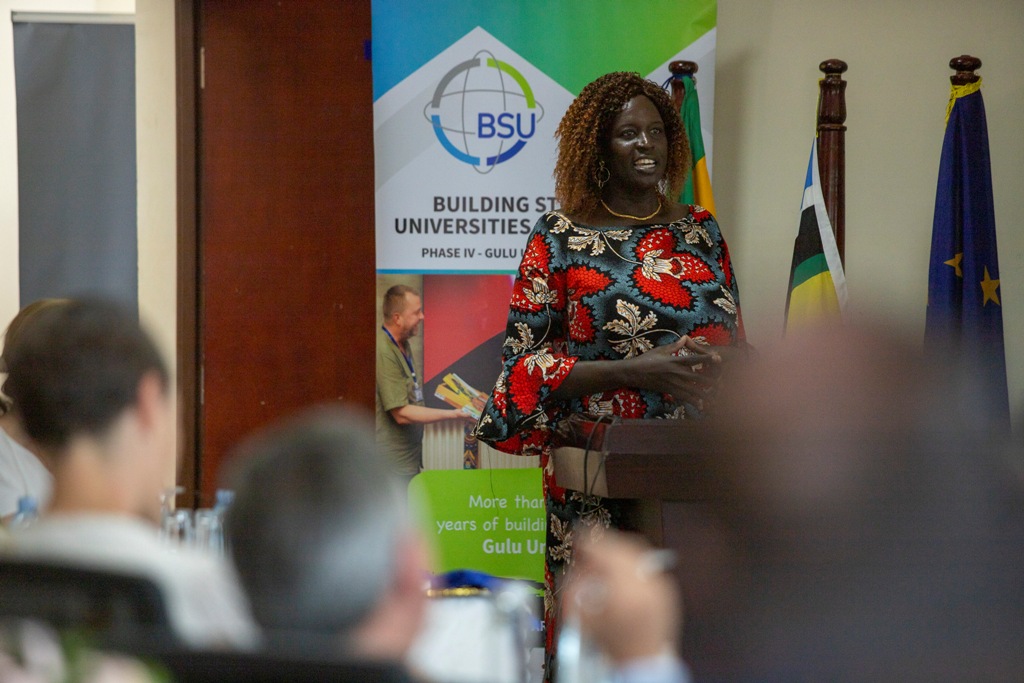
Dr. Apecu addresses the EU Delegation on Transitional Justice in Northern Uganda
Dr. Apecu also criticised the design for compensating victims of the war, calling it selective.
“The Dominic Ongwen case has been concluded by the International Criminal Court and the atrocities for which he was convicted took place in Lukodi, Odek, Pajule, and Abok. Those are the only people supposed to receive reparations from the International Criminal Court. Thomas Kwoyelo also; his trial was concluded and the only people who are supposed to receive reparations are those ones in Pagak. But what about the entire victims, the entire survivors who are not going to receive this?,” She wondered.
The EU speaks
Jan Sadek , the EU Ambassador, said Transitional Justice was one of the themes they wanted to study during their visit to northern Uganda.
“It is something unfortunately associated with the region but very important to understand how you are dealing with it. We have contacts in Kampala. Before this visit we met with the ICC, the Trust Fund for Victims, we have understood their work, which we are also supporting. What we have understood here is the important work that the university is doing. It is very interesting to get the intellectual underpinning to what we have heard before about Transitional Justice. We leave this room at a much higher degree of knowledge and understanding. Thank you to the Danish Embassy who planned this visit. The Building Stronger Universities project seems to be a very successful one,” he said.
The delegation ended its visit with the launch of the Centre of Excellence in Transitional Justice and Refugee Studies, housed by the IPSS.
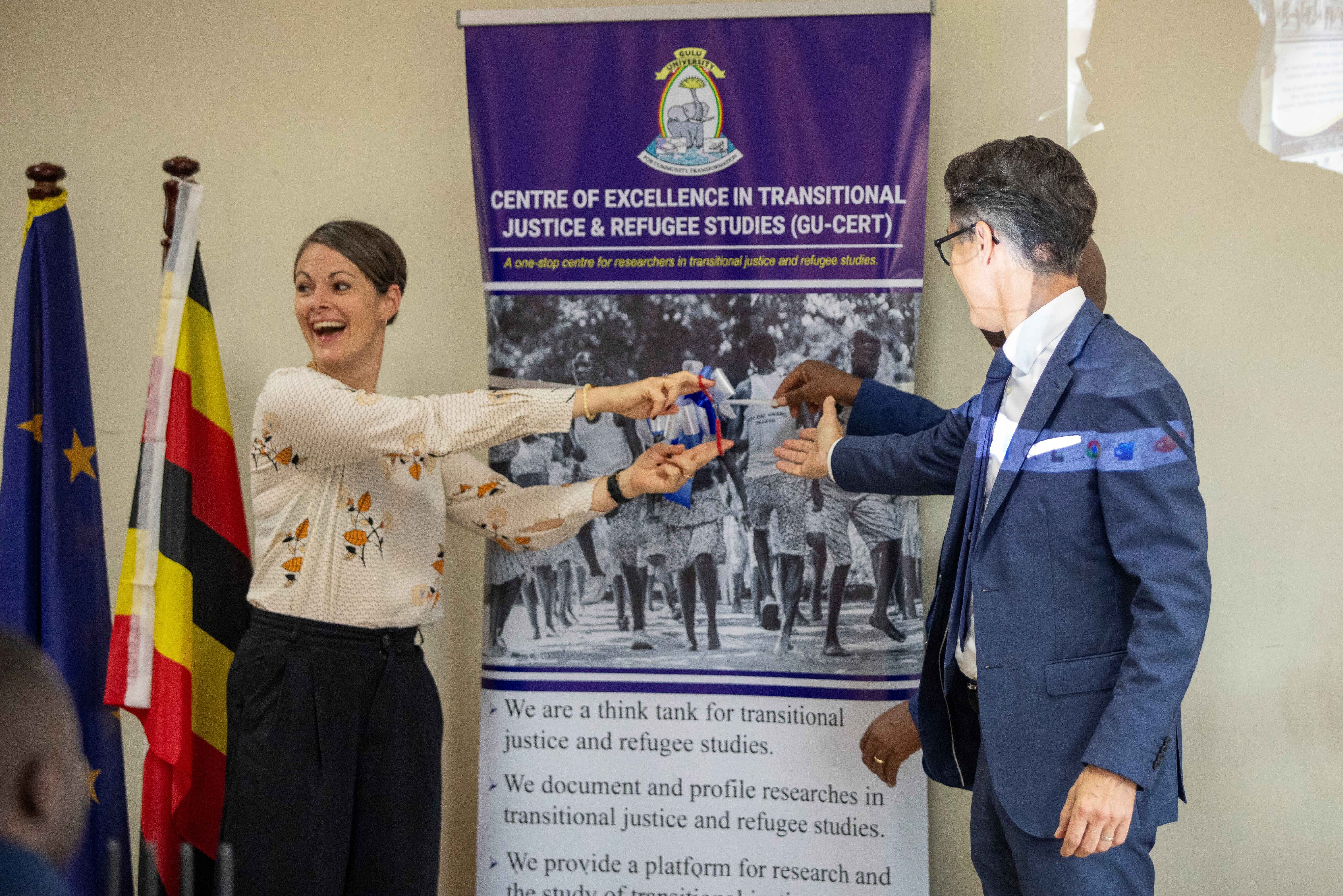
Ambassadors Albjerg and Sadek, together wirth Prof. Owiny, launch the GU-CERT
The centre will act as a think-tank for transitional justice and refugee studies. It will also document and profile researches in TJ and refugee studies, and provide a platform for research and the study of transitional justice and refugee studies through graduate training.
